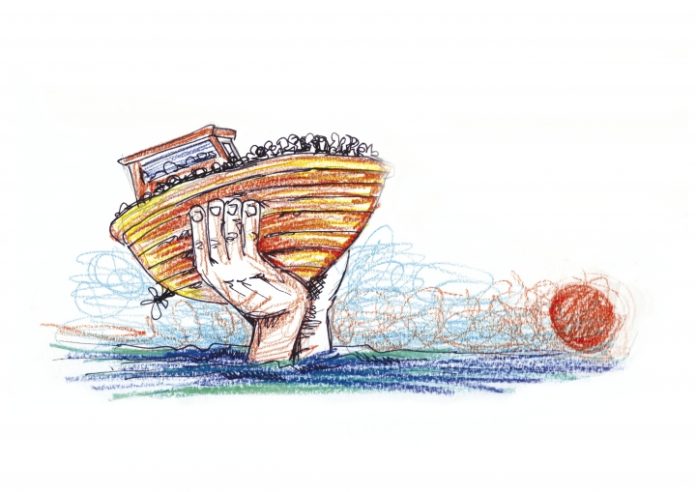
Roma (NEV), 24 gennaio 2019 – On the occasion of the Week of Prayer for Christian Unity, Italian Protestants and Catholics are launching a joint appeal because a spirit of humanity and solidarity towards migrants must continue. Whilst everyone may have a duty towards those who abandon their own countries, risking life and death in the desert and at sea, for Christians, it is a moral obligation. And it’s for that reason that, during the week dedicated to Christian unity, being observed right now (18th – 25th January) throughout the world, we felt it necessary to unite our voices, just as have worked together on so many occasions in the immigration sphere, bringing about the first humanitarian corridors, launched by the Community of Sant’Egidio, Federation of Protestant Churches in Italy, Waldensian Board, Italian Episcopal Conference and Caritas Italiana.
“At a time when we celebrate the gift of unity and fraternity among Christians, we would like to explain to everyone that, for us, helping those in need is not a gesture born of do-gooding, naïve altruisim or, worse still, convenience: it is the very essence of our faith. We regret and are dismayed by the superficial and repetitive rhetoric which, for months now, has been used in relation to the theme of global migration, and which loses sight of the fact that, behind the migrant flows, landings and statistics, there are men, women and children who are denied their fundamental human rights: in the countries from which they are fleeing and, indeed, in the countries through which they transit, such as Libya, where they end up in detention camps where they struggle to survive. To point the finger at them as though they were a threat to our wellbeing, to define them as potential criminals or freeloaders in our reception system is to betray the story of immigrants – Italians included – who, by contrast, have contributed to economic, social and cultural growth in so many countries. Hence our appeal because – amidst the political clash – a sense of respect for people and their stories of suffering must not be lost.”
But, beyond the approach, the ecumenical document tackles substantive problems:
“A migration policy which does not open new safe and legal entry pathways to Europe is fatally destined to incentivise irregular immigration. As a result, we call on various European countries to replicate or at least expand humanitarian corridors, opened for the first time in Italy at the beginning of 2016. The test phase is long past and the results, positive in so many respects, are clear for all to see.
It would therefore be a good thing to switch to widespread use of this model, which saves human beings from people-smugglers and fosters integration. As such, we appeal directly to the Italian government to increase the quota of beneficiaries welcomed in our country and become a promoter of a ‘European humanitarian corridor’, managed by the EU and by a coalition of willing countries, establishing a proper sponsorship system.’
The document also tackles the problematic issue of sea rescue:
“In the short term, however, while European consensus on these measures is sought, it is imperative to guarantee sea rescue, which should not be reduced to a push-back policy or simple border closure. Migrants cannot be three times victims: of persecution; of those who detain them in camps – which, as the UN has attested on many occasions – do not uphold fundamental human rights; and of those who push them back to the same camps and the same degradations. For us Christians, as for every human being, failing to help someone lying on the road or at risk of drowning is behaviour of which one can only feel ashamed. As such, we seek to have existing rescue activities strengthened, by military means, by the Coastguard and by NGOs, always respecting maritime law and humanitarian law.”
The text closes with an appeal to create a consensus on specific points upon which the churches are ready to offer their contribution:
“However divisive, the theme of migration so serious that it cannot be tackled without seeking a base of shared procedures and propositions. This is what we are hoping for and as such we are willing to make available our experience and our resources, ready to collaborate with the authorities, be they Italian or European.
Rome, 23 January 2019
Rev. Eugenio Bernardini, Moderator of the Waldensian Board
Prof. Marco Impagliazzo, President of the Community of Sant’Egidio
Rev. Luca M. Negro, President of the Federation of Protestant Churches in Italy
Mons. Stefano Russo, Secretary General of the Italian Episcopal Conference


























